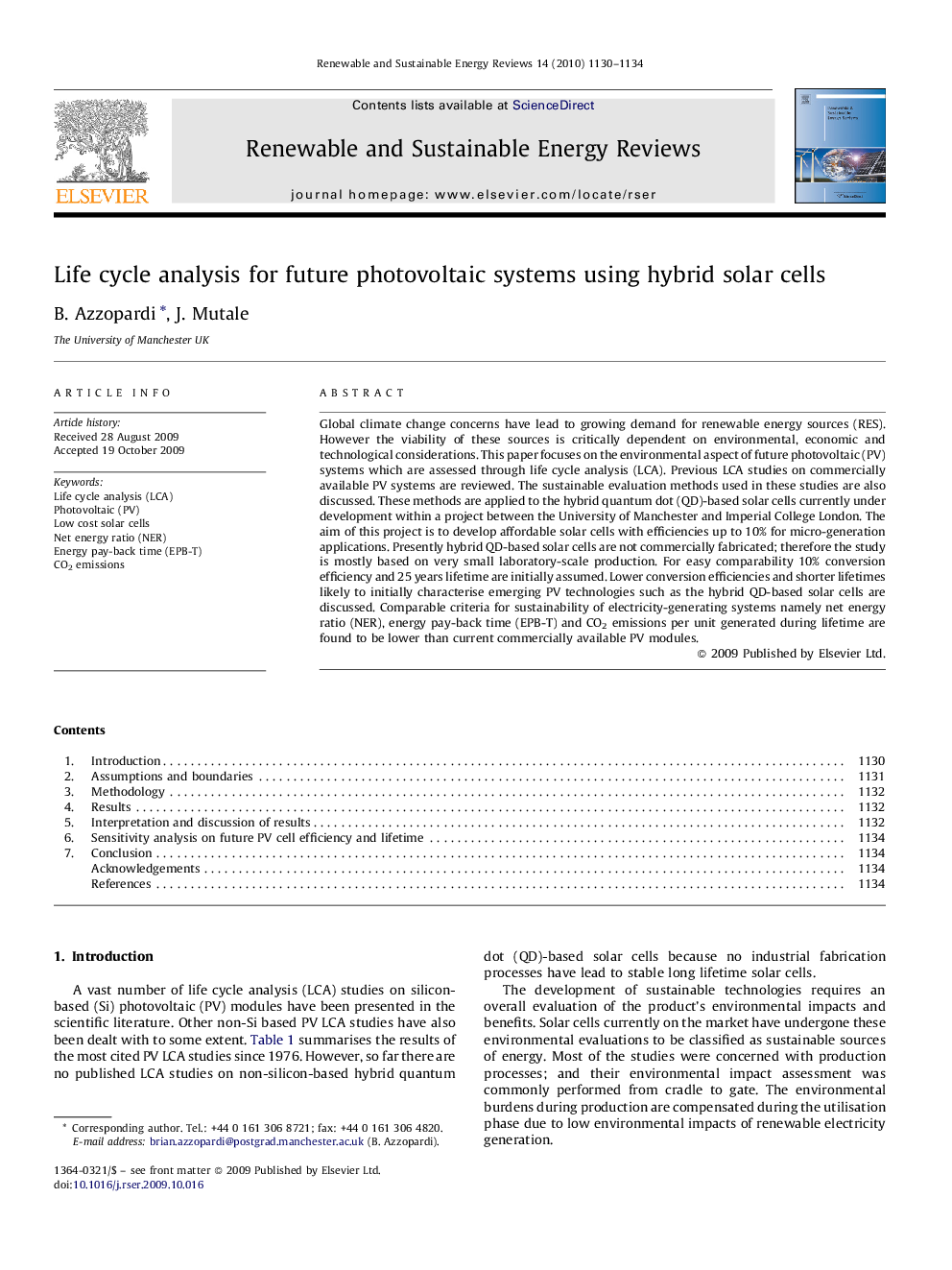| Article ID | Journal | Published Year | Pages | File Type |
|---|---|---|---|---|
| 1751648 | Renewable and Sustainable Energy Reviews | 2010 | 5 Pages |
Global climate change concerns have lead to growing demand for renewable energy sources (RES). However the viability of these sources is critically dependent on environmental, economic and technological considerations. This paper focuses on the environmental aspect of future photovoltaic (PV) systems which are assessed through life cycle analysis (LCA). Previous LCA studies on commercially available PV systems are reviewed. The sustainable evaluation methods used in these studies are also discussed. These methods are applied to the hybrid quantum dot (QD)-based solar cells currently under development within a project between the University of Manchester and Imperial College London. The aim of this project is to develop affordable solar cells with efficiencies up to 10% for micro-generation applications. Presently hybrid QD-based solar cells are not commercially fabricated; therefore the study is mostly based on very small laboratory-scale production. For easy comparability 10% conversion efficiency and 25 years lifetime are initially assumed. Lower conversion efficiencies and shorter lifetimes likely to initially characterise emerging PV technologies such as the hybrid QD-based solar cells are discussed. Comparable criteria for sustainability of electricity-generating systems namely net energy ratio (NER), energy pay-back time (EPB-T) and CO2 emissions per unit generated during lifetime are found to be lower than current commercially available PV modules.
